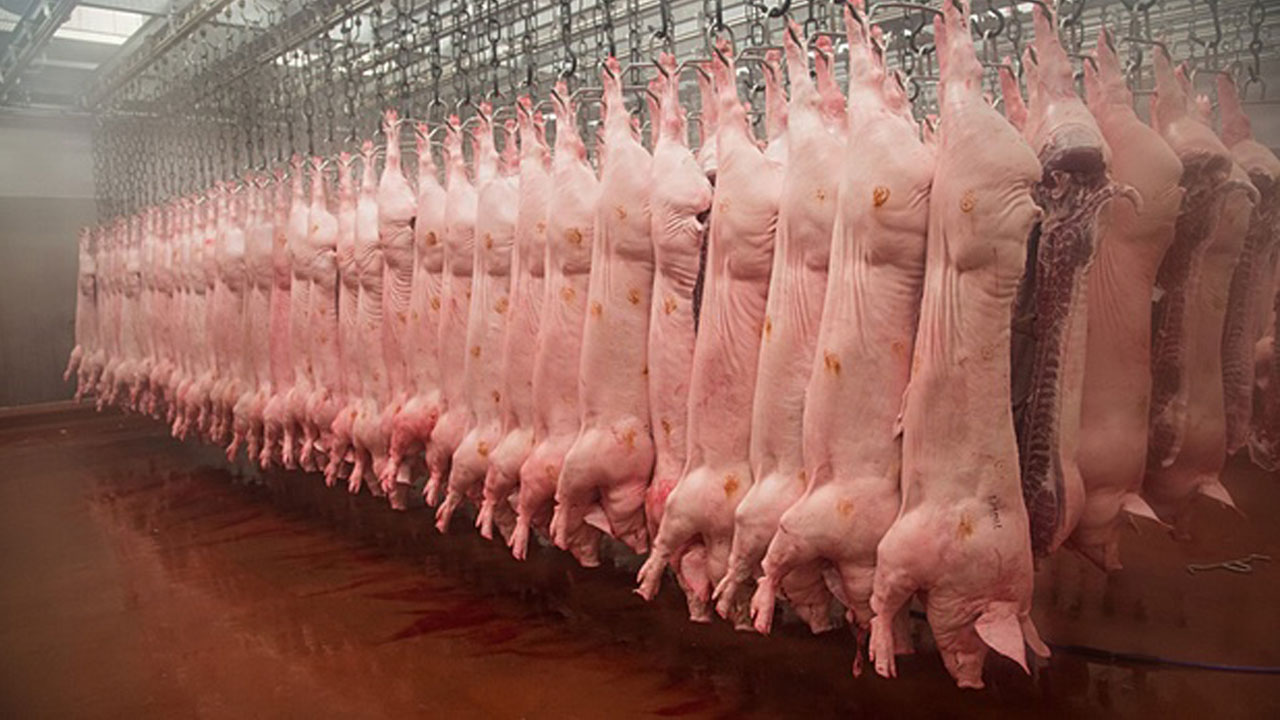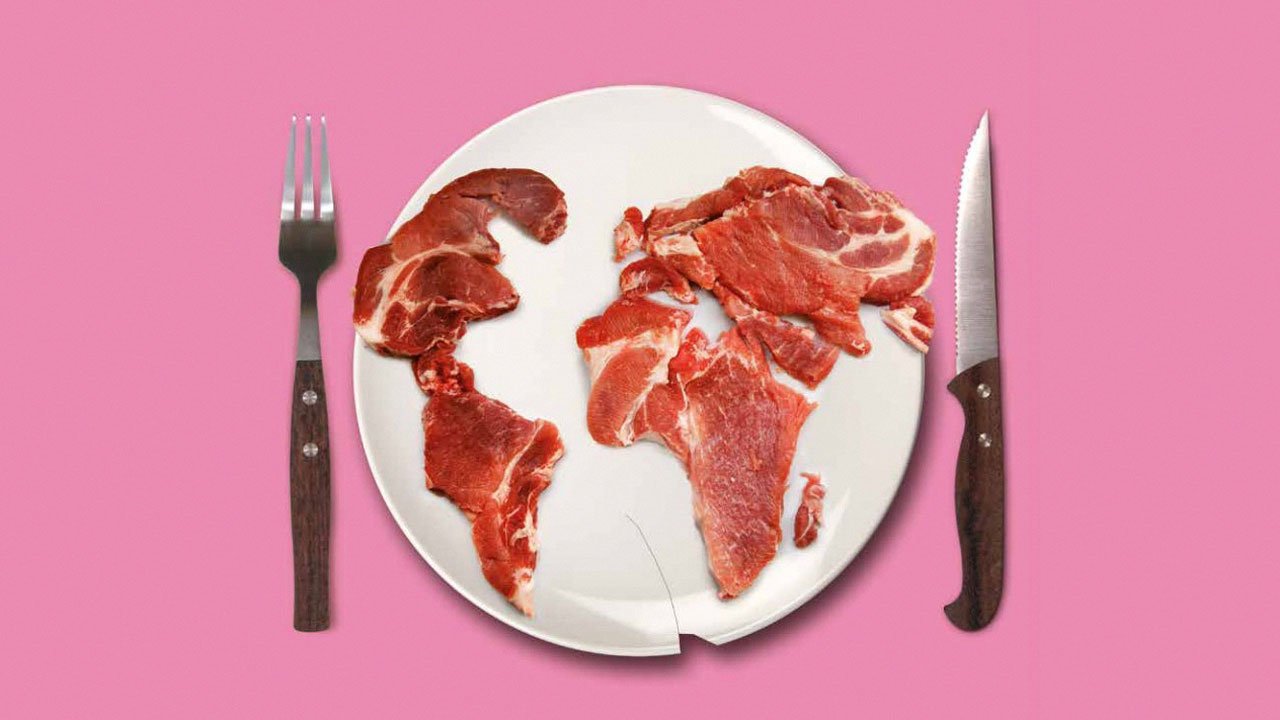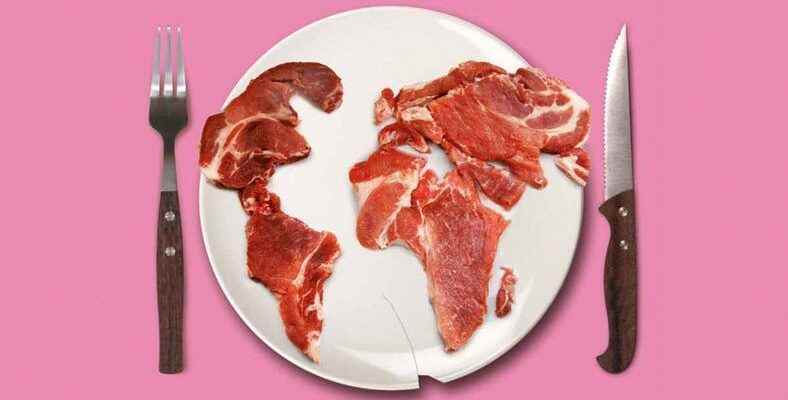20 companies producing animal food emit more greenhouse gas emissions to the world than the UK, Germany or France.
Spread by about 20 companies producing on industrial livestock in the global market greenhouse gas emission More than England, Germany or France. farmingToday, with the support of uncontrolled consumption, to profit rate one of the industries.
% of greenhouse gas emissions in the world 14.5 of them makes up livestock. In some years, this rate is higher than the greenhouse gas emitted by the entire transport sector, and often equal. Especially with many scientific reports published in recent years, the necessity of a serious decrease in meat and milk consumption has been announced.
They receive billions of investment support:
According to the “Meat Atlas” report prepared by the European Heinrich Böll Stiftung Foundation and Friends of the Earth, global meat and dairy companies in North America or Europe have been operating in the last five years. 478 billion dollars received more investment support. Although the necessity of plant-based nutrition has been proven day by day, the report states that the meat industry, which receives this level of financial support, will continue until 2029. 40 million tons increasing annually to 366 tons expected to be achieved.
Worldwide, three-quarters of all farmland is used for raising or feeding livestock. 175 hectares in Brazil alone raising cattle for use, this area is the European Union’s all farmland equal to the sum. 60% of the world’s meat production is carried out by China, Brazil, the USA and members of the European Union. According to the report, these countries will continue to be the largest producers until 2029.
The largest companies are increasing their brand strength by acquiring smaller ones. This reduces the competition in the market. Decreased competition in the industry to monopolize and to get out of control it causes. Monopolization also prevents the transition to more sustainable food production models.
Change required:

Industrial animal husbandry is increasing for the production of animal protein demanded in the market and sustainable models are ignored. The companies created prevent and minimize harm Much more regulation is needed in the meat industry. Stanka Becheva, who works at Friends of the Earth, said:We need to start reducing the number of food animals on the planet and encourage different consumption patterns” says.
Becheva also supported the animal protein production projects of investors, especially the World Bank and the European Development and Investment Bank. stop financing highlights the need.
The main companies mentioned in the report are: JBS, Tyson, Cargill, WH Group, Danish Crown, Groupe Bigard, Tönnies, Coren, Westfleisch, Dawn Meats, LDC, Plukon Food Group, Gruppo Veronesi, PHW-Gruppe, Vion, Müller Group, Sanderson, Purdue, Hormel, Saputo, Kraft-Heinz, BRF, Marfig, NH Foods, Meiji, Yili, Mengniu, Arla, DMK, Sodiaal, Nestlé and Danone.
What will be the solution?

Paolo Patruno, Deputy Secretary General of the European Meat Processing Industry Association (CLITRAVI), commented on the report.We know that the average greenhouse gas emissions from livestock in the EU are half of the global average. global average 14 percent and EU average 7 percent.” said. He stated that they do not believe that any food sector is less sustainable than the other, but that there are much more sustainable ways. He announced that they are committed to making animal protein production more sustainable.
The National Farmers’ Association is also in agriculture in England and Wales by 2040. net zero announced that they aim to reach greenhouse gas emissions.
However, at the point reached today, the problem cannot be solved only with sustainable production models. greenhouse gas emissions, according to a study at the University of Minnesota. effective in reducing The following conclusions were reached:
- Following a diet close to a completely plant-based diet will reduce world emissions. 650 billion metric tons of greenhouse gas emissions will mean a reduction.
- If everyone consumes the right amount of calories for their age on a daily basis (which is an average of 2,100 calories for adults), that’s it. 410 billion It will cut metric tons of greenhouse gas emissions.
- If the agricultural sector uses less chemicals and cultivates the soil more accurately, 540 billion metric tons of emissions will be cut.
- If the agricultural sector tries to increase productivity by using genetic modifications, this method will also be used. 190 billion metric tons of emissions.
- If people throw less food in the trash, waste in the restaurant industry can be avoided, and food not consumed in some places can be transferred to other regions and countries where it is needed. 360 billion will prevent the release of metric tons of emissions.
Even if the world applies half of these five substances, 850 billion metric tons of reduction will be seen. In addition, if there is a decrease in the use of fossil fuels, an important way will be covered in the fight against the climate crisis. 0.3 to 0.7 degree of temperature increase will be prevented, which of the Paris Climate Agreement. within its targets.
Source :
https://tr.euronews.com/2021/09/10/hayvanc-lk-made-20-company-reason-is-sera-gaz-england-germany-or-france-dan-fazl?utm_medium=Social&utm_source= Twitter#Echobox=1631304765
